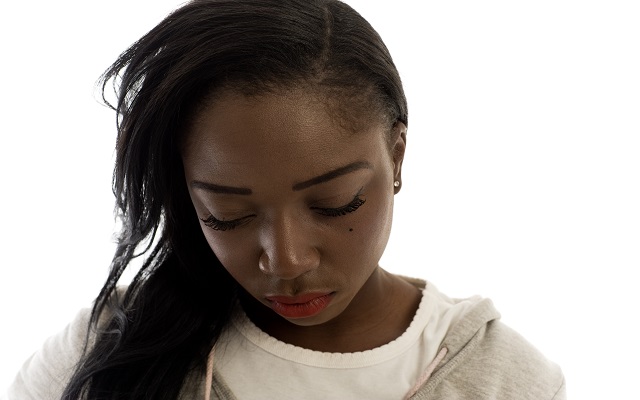In case you missed it, read A Lawyer’s Perspective: 50 Answered Questions on Rape Pt. 4
40. Can a man be accused and tried of raping a prostitute?
Yes. It is not a defense to the offence of rape that a victim is a “common” commercial sex worker. In Nigeria, prostitution is neither legal nor clearly illegal[1] but a court of law will not come to the aid of an aggrieved party in this kind of “contract” because it is inconsistent with public morality and decency. For example, if a prostitute after collecting money from a customer refuses to give him sex, such customer cannot receive any remedy at law and he cannot justify rape on the basis that he has paid for the sex.
41. Can a guy be accused and tried for raping his girlfriend?
Yes.
42. Can a rape victim sue for financial compensation?
That is possible only after the rapist must have been tried and found guilty of committing the crime.
43. Can a woman raped some years ago still report at a Police Station?
Yes, if it is possible to gather evidence which may be subsequently presented in court but in case there is no evidence, the implication is that the victim can no longer get justice. It is therefore advisable that rape incidents be reported as soon as they occur, at best within 24 hours. A rape case can also be charged to court many years after its occurrence but unlike election petition cases, there is no time limit within which it must be concluded.
44. How can a woman raped in Police or Prison custody get justice?
Any woman raped while in the custody of the Police or Prison Authorities may complain to the head of such public institution and if no desirable step is taken following the complaint, the victim may contact a lawyer through her family who will in turn write a petition to the National Human Rights Commission. It must be noted that evidence is important and so, a victim must strive to obtain a medical report.
45. Is it legally permitted to abort a pregnancy occasioned by rape?
No. The Nigerian law on abortion is very strict. Abortion is only permitted if a pregnancy threatens a woman’s or girl’s life.
46. Is there government support for victims of rape in Nigeria?
There is no special institutional support for victims of rape in Nigeria. Like other crimes, victims of rape need to lodge complaint of their experience in any Police Station close to the scene of crime. However, some NGOs[2] exist that assist rape victims, especially in places like Lagos, Port Harcourt and Abuja.
47. What are the effects of rape?
Rape is a heinous crime and it usually leaves a victim emotionally disorganised. It may also lead to the following: (a) unwanted pregnancy, (b) transmission of sexual diseases e.g. HIV/AIDS, (c) abortion, (d) suicide tendencies, (e) trauma, (f) loss of self-esteem, (g) untimely death, (h) damage to body organs, among others.
48. What are the causes of rape?
So many factors are responsible for the commission of rape. It is impossible to exhaust the list. However, some of the causes, both immediate and remote, are the following: (a) negative and judgmental societal attitude towards victims of rape, (b) drug abuse, (c) pornography, (d) seductive dressing, (e) spiritual reason, (f) poor, gender-insensitive, victim-insensitive and unscientific police investigation, (g) reluctance of victims to speak out and give evidence in court, (h) weak judicial system, etc.
49. Should the punishment for rape be reviewed?
The punishment may be reviewed which will require judicial officers not to impose penalty below 14 years’ imprisonment where rape is established, while in some other cases maximum punishment should be imposed, especially if established that the perpetrator is a serial offender. The law as it is appears to give judicial officers wide discretion in terms of the punishment they may impose. It is noted that in some cases, judicial officers impose penalty which is considered ridiculously low[3].
50. Should the definition of rape be reviewed?
In view of different advancements of the modern world, the definition should be expanded. It is suggested that the US Department of Justice’s definition should be adopted.
CONCLUSION
How can the rising rate of rape cases be stemmed in Nigeria? There is need for a multi-dimensional approach but above all, there must be awareness and proactive campaigns against rape, while an enabling environment must also be created to ensure that rape victims can come out to report the offence.
Law enforcement agents must show empathy to rape victims and must not be judgmental by seeing victims as the cause of what happens to them. Investigative capacity of the Police especially needs to be enhanced through the introduction of forensic techniques of evidence gathering. The Criminal Procedure Law also needs to be amended to accommodate the peculiarity of rape cases. For example, victims of rape should be offered some protection and confidentiality within the scheme of criminal justice architecture and this is possible by ensuring that only persons such as the victims, witnesses, lawyers, and necessary court staff who have some role to play in a court session are allowed to be present, while proceedings are ongoing.
About the writer:
Kehinde Adegbite is a lawyer of over 10 years’ post-call experience. He is at present a Principal State Counsel, Ministry of Justice, Ibadan, Oyo State. He is the author of HOW TO WRITE YOUR WILL WITH EASE and LEARNING THE LAW IN NIGERIA. The author is presently working on another book titled WHAT THE LAW SAYS ABOUT MARRIAGE AND DIVORCE. His books, though useful for lawyers, are written essentially for non-lawyers.
Blog: www.gettipsforeveryday.blogspot.com
Contact: [email protected]; 0708-291-8395
NOTES
[1]. Kehinde Adegbite, Learning the Law in Nigeria, 2015, Lagos: Princeton Publishing Company, pp. 161-162.
[2]. Mirabel Centre is one of such organisations.
[3]. In the case of Ogunbayo v. State (2007) 5 SCM 154, the trial court found the accused person guilty of rape and imposed 7 years’ imprisonment on him with an option of fine of N5000.


